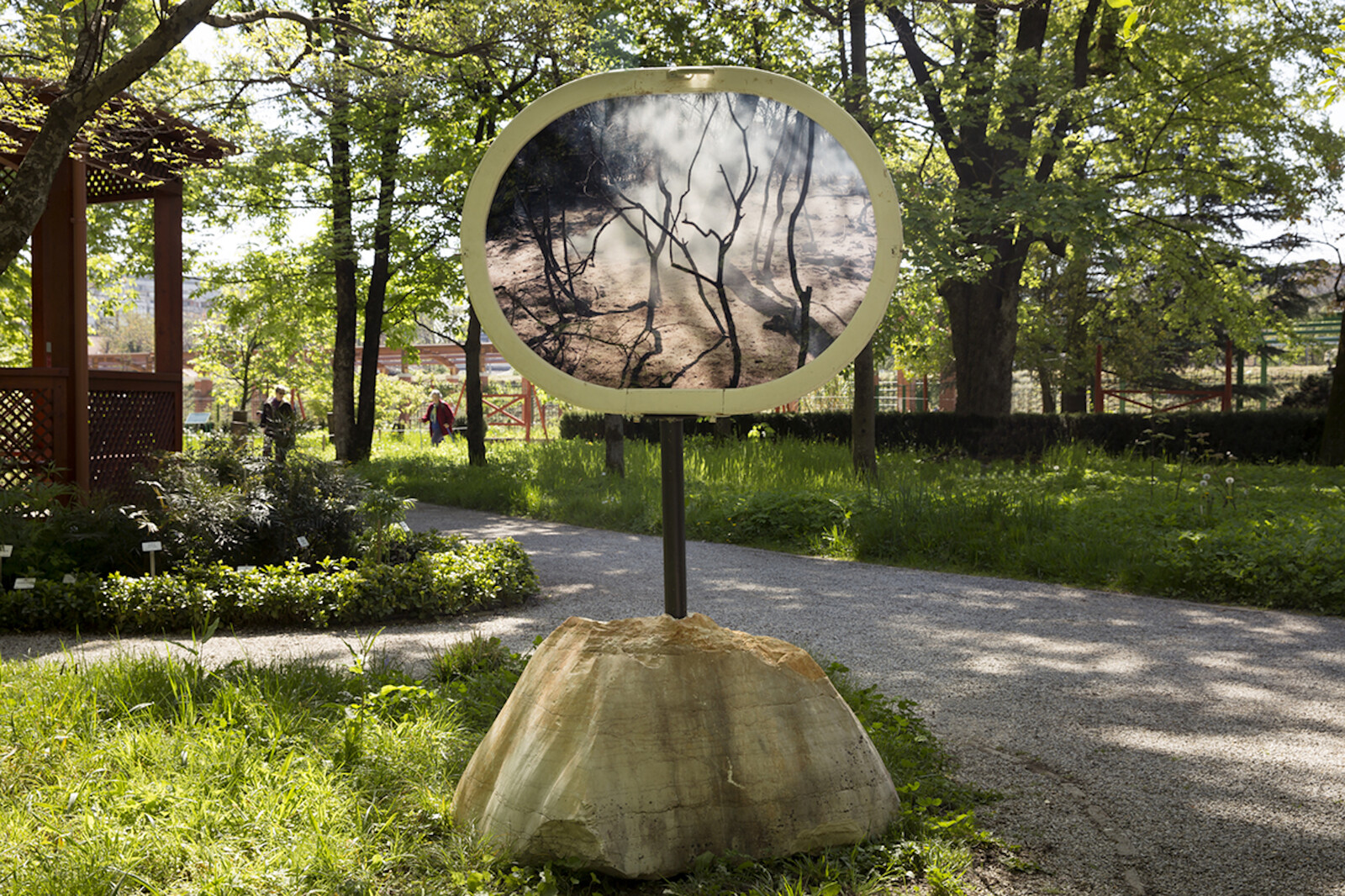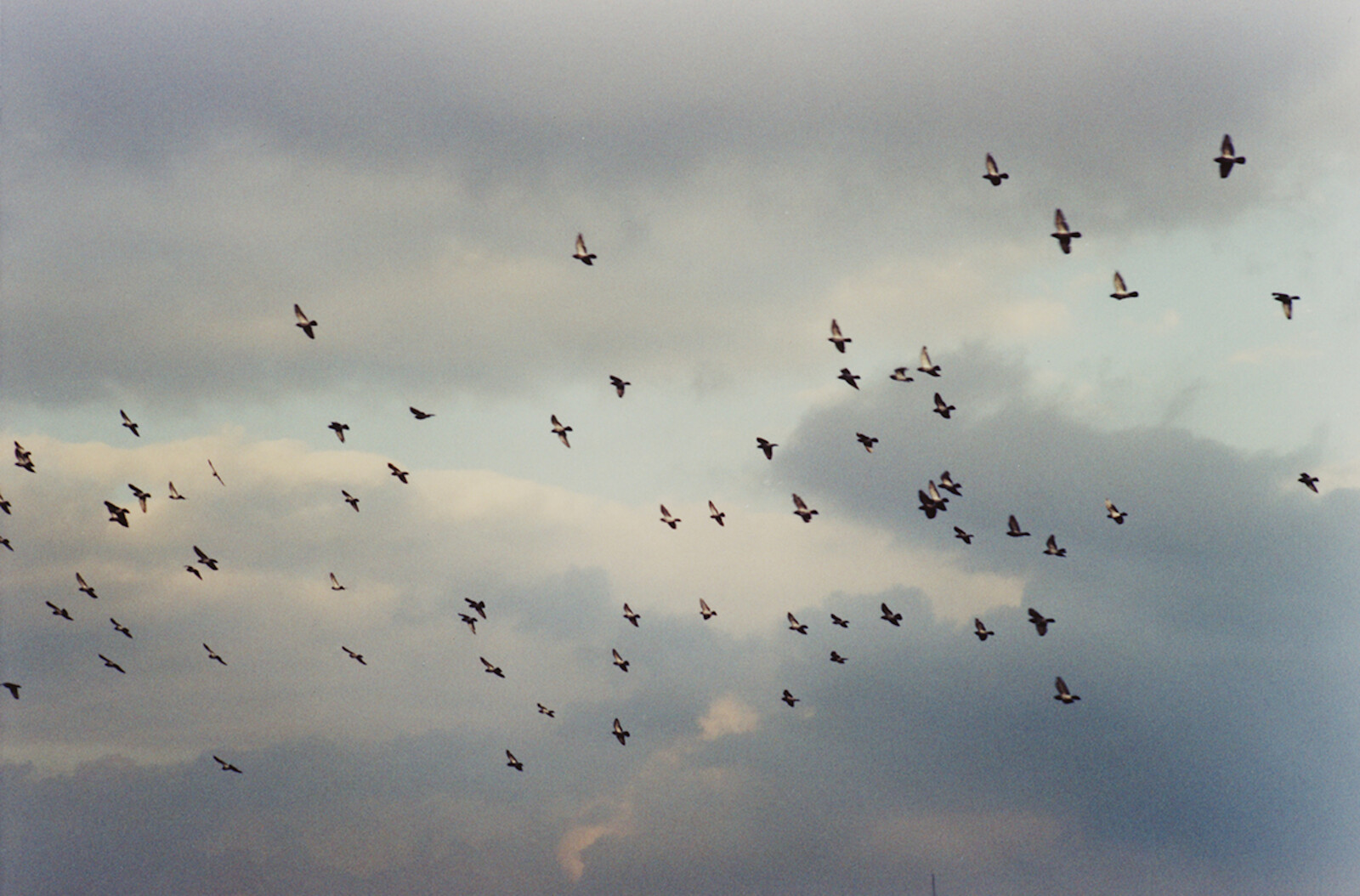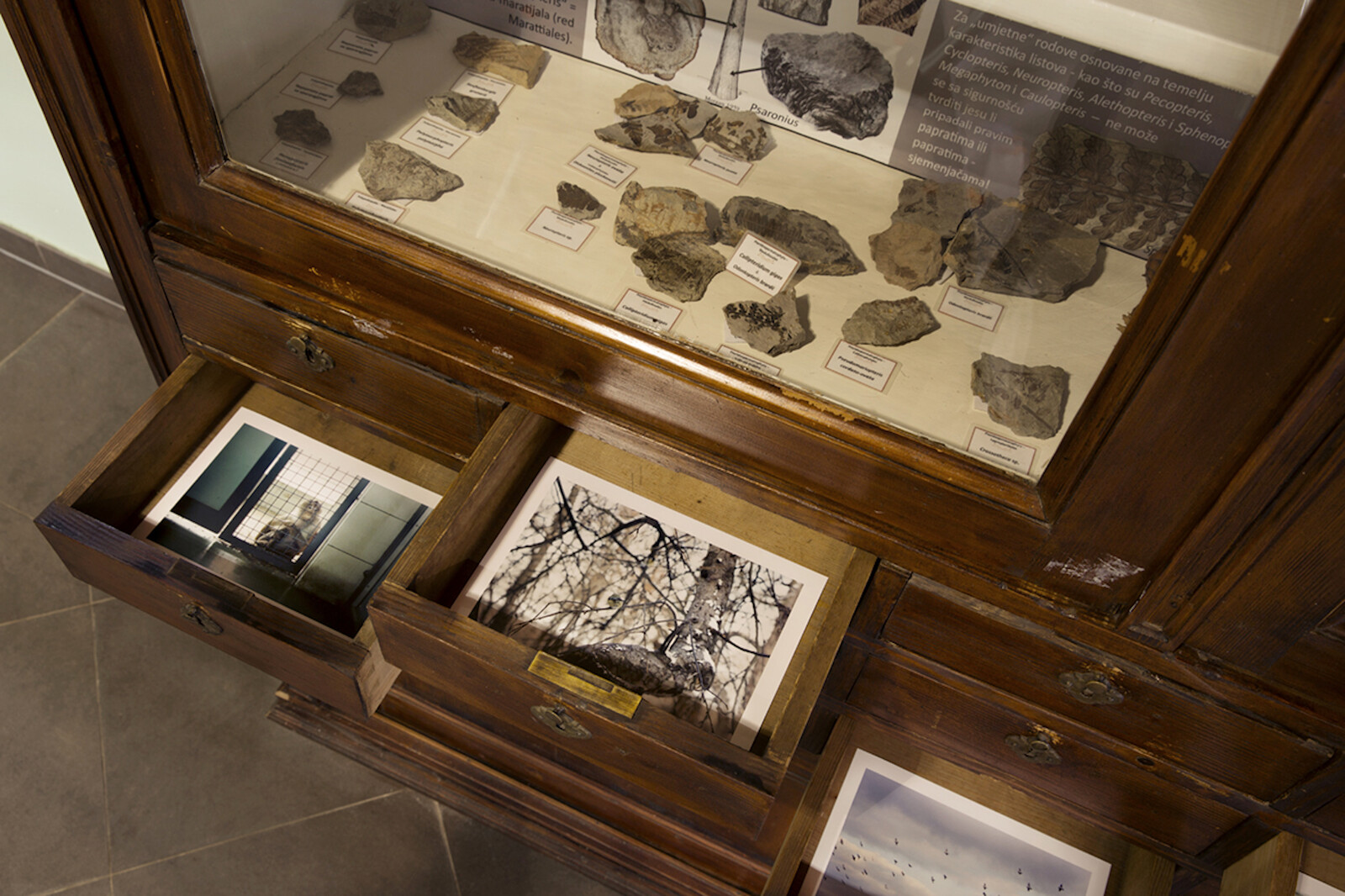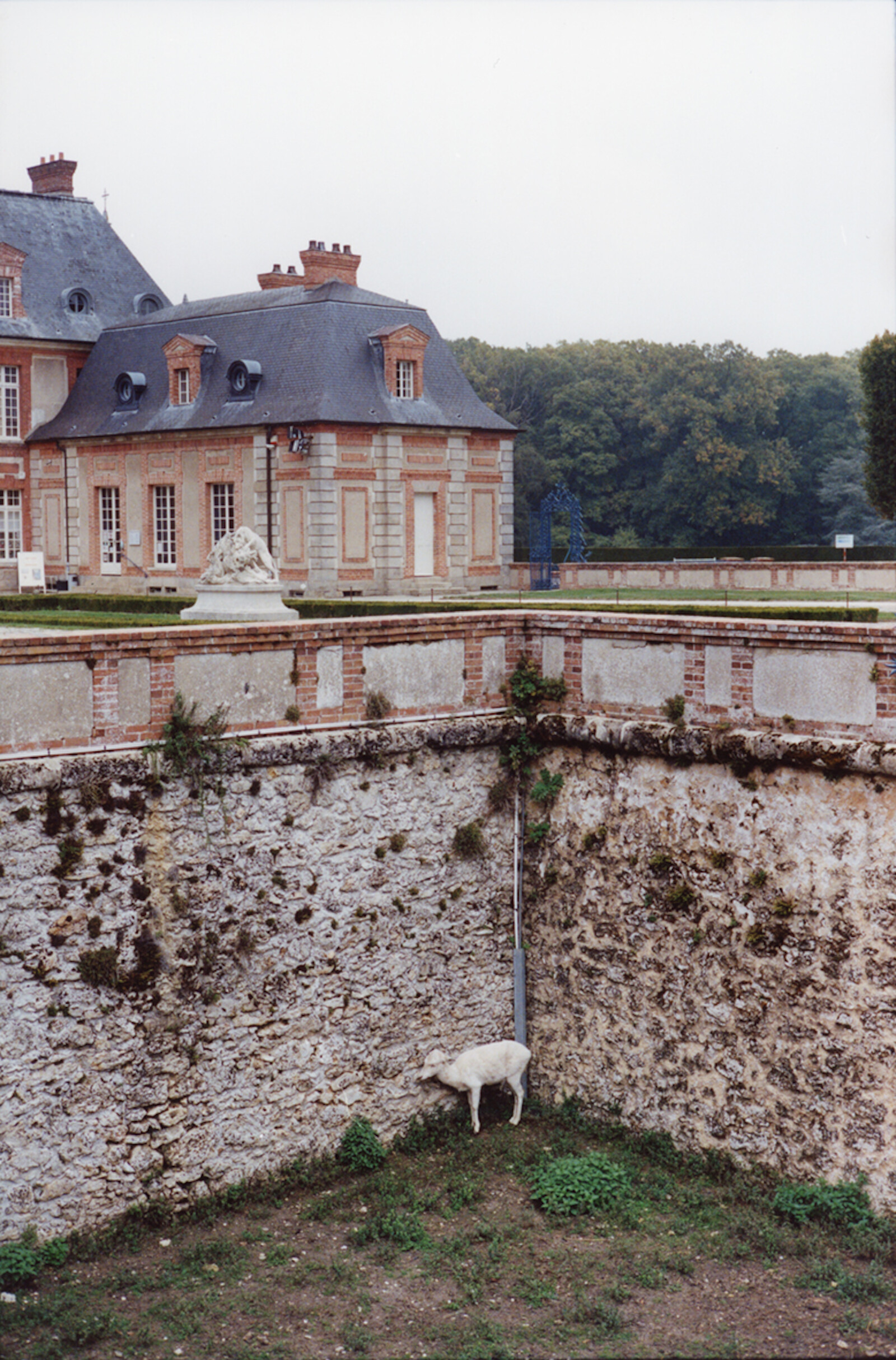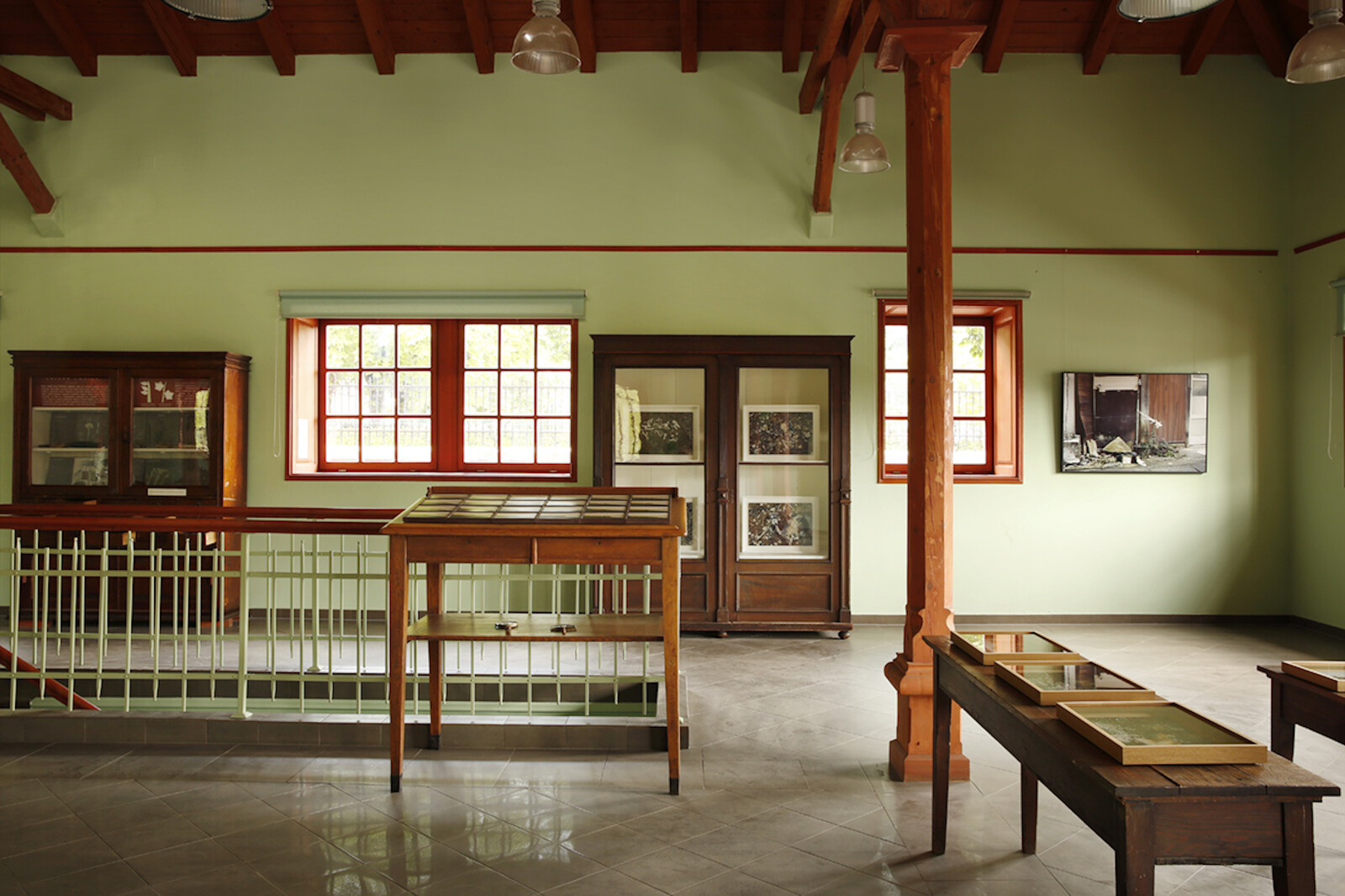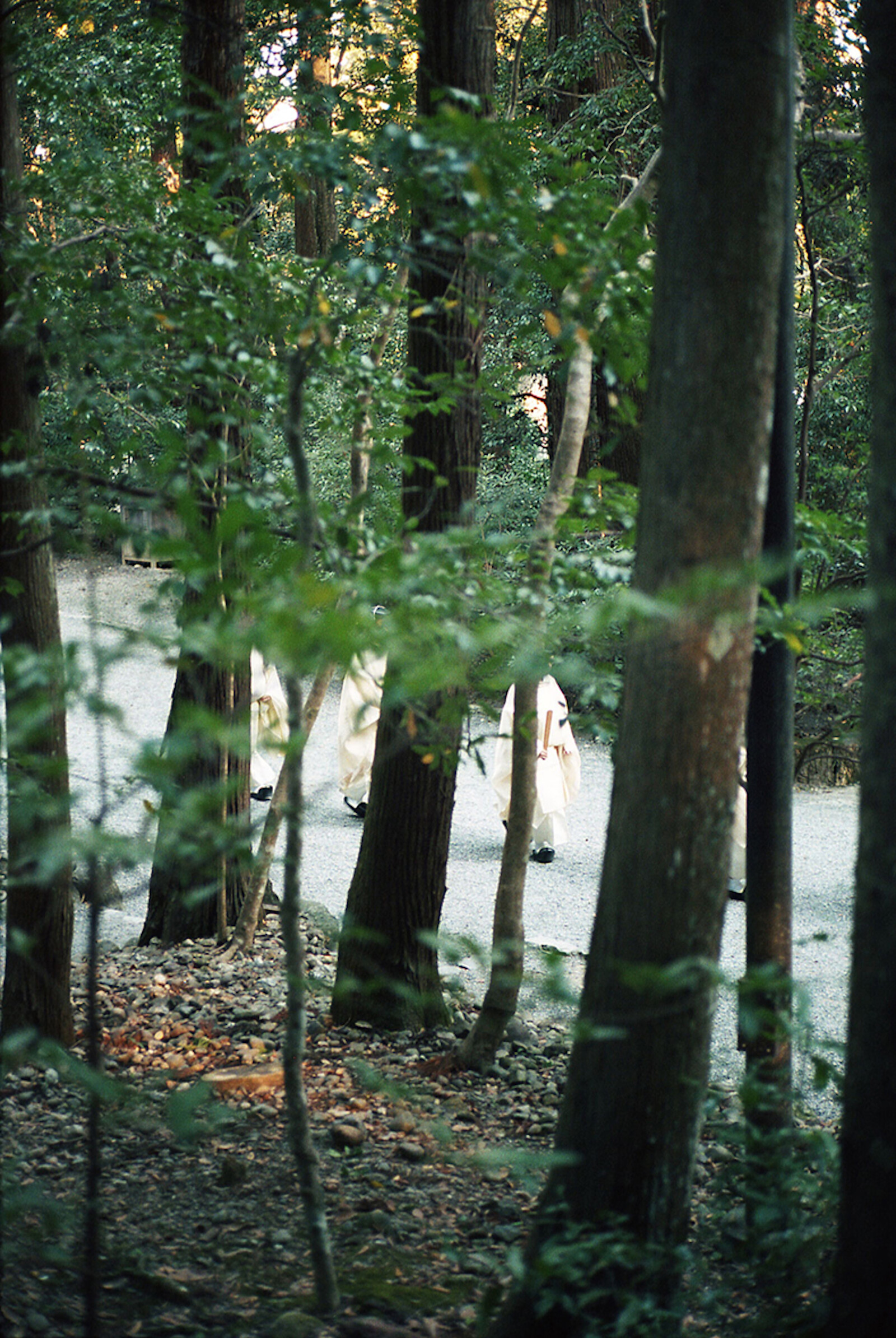SofijaSilvia’s photography touches upon those tender, knotted moments when care for the more-than-human becomes almost inseparable from a politics of domination and control. She returns to loaded institutional sites—like zoos, cemeteries, botanic gardens, and museum storage units—but also places in which aesthetics are more subtly constructed—nature reserves, managed woodlands, and the private retreat of a Communist dictator. Employing various deft framing and display strategies to bring together work across a range of scales—from A6 to 1.5 meters across—made between 2001 and 2022, “Pendulum” addresses local and global catastrophes: earthquakes, forest fires, and the Covid-19 pandemic. Its very presence at the University of Zagreb’s botanical garden is a result of the 2020 earthquake that damaged almost 2,000 buildings across the city, including the Art Pavilion, which had commissioned the exhibition and which remains closed.
“Pendulum” responds both conceptually and materially to this context. The garden opened in 1891, when Croatia was part of the Austro-Hungarian empire. It is a reminder of botany’s proximity to imperialism, and SofijaSilvia effectively unsettles the epistemic hierarchies upon which such institutions were founded. Most of the works are inside a high-ceilinged timber pavilion, built to exhibit wooden products made by prisoners at a forestry exhibition in 1891. Derelict by 1980, and restored in 2007, the pavilion is today used for classes during summer and for protecting frost-vulnerable plants over winter. For “Pendulum,” SofijaSilvia has repurposed furniture found in the building: a lectern, a glass-fronted cabinet, and a chest of drawers used for storing seeds. In four of these drawers are photographs of animals: a flock of pigeons flying overhead, a blue tit turning its back on the viewer, and two images from European zoos—a monkey in Sarajevo and a deer in Prague. Showing these photographs unprotected draws attention to the fragile materiality of the analogue image. That each is isolated in a drawer is suggestive both of captivity (the zoo; the prison) and the predilection for essentialism in western thought (the fixing of knowledge into categories; of life into hierarchies). The faces of the incarcerated animals are heartbreaking.
Outside in the gardens are five works from the titular series, “Pendulum” (2022), shown as Duratrans prints, backlit by daylight. Taken the day after a forest fire in Croatian Istria, the photographs show trees silhouetted against white smoke-like shadows of themselves. Each is housed in an elliptical wooden window frame, formerly part of the Art Pavilion offices but another casualty of the earthquake. The effect is both mirror (trees in the botanic garden are reflected in each glossy surface) and portal, inserting a view of one landscape into another. Moreover, the images are mounted on the very terrain they depict: stands made from sedimentary Kirmenjak boulders emphasize the contrast between the laboriously maintained lushness of the urban botanic garden and the torched earth of the world outside.
Often skyless and immersive, SofijaSilvia’s aesthetic is sensuous and melancholic. Lockdown2020 (2020), which depicts a Danish white red deer, imprisoned as a status symbol in the deep moat of a private French château, is painfully bleak. More subtle is “Crossings” (2010), which shows a community of deer swimming together from one island to another at dusk. These images are part of a wider body of work, “Silent Islands, Brioni” (2009–14), a series of poetic encounters which trace multiple overlapping layers of land ownership and use on Croatia’s Brioni Islands, once a health resort under a Viennese industrialist, then President Tito’s private retreat. Twenty four of these photographs are shown, like a contact sheet, atop a wooden lectern. If there is a lesson here, it is that even this apparently joyful scene is in fact the product of complex political histories and drought-induced migration.
“Pendulum” suggests a swing from neglect to overbearing control, but the exhibition does offer the possibility of balance via “The Sound of Water” (2019), a series of works produced on residency in Japan. Shinto Priests contains the exhibition’s only human presence. A pair of cream-robed figures, anonymous, are just visible through trees, as if SofijaSilvia is giving us the forest’s-eye view. From the same series, Lilium Formosanum is an exquisite moment of cultivation. Surrounded by crumbling concrete in a corner of Ise, Japan, grows a handsome white lily, whose presence is said to signify clean water. Then you notice that the lily is not growing by chance: lest it buckle under the weight of its own symbolic beauty, somebody has gently tied a piece of polythene from the lily’s stem to an old pipe. Despite everything, individual acts of care remain not only possible but necessary.

